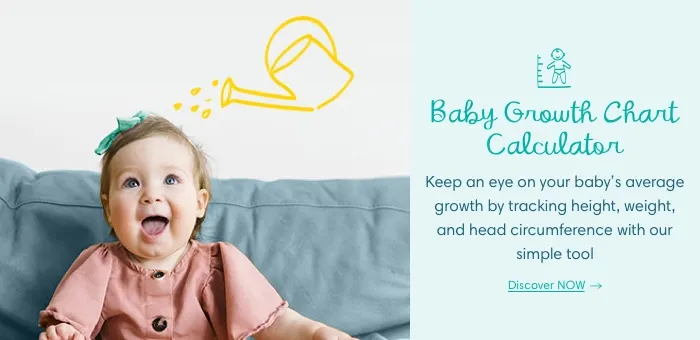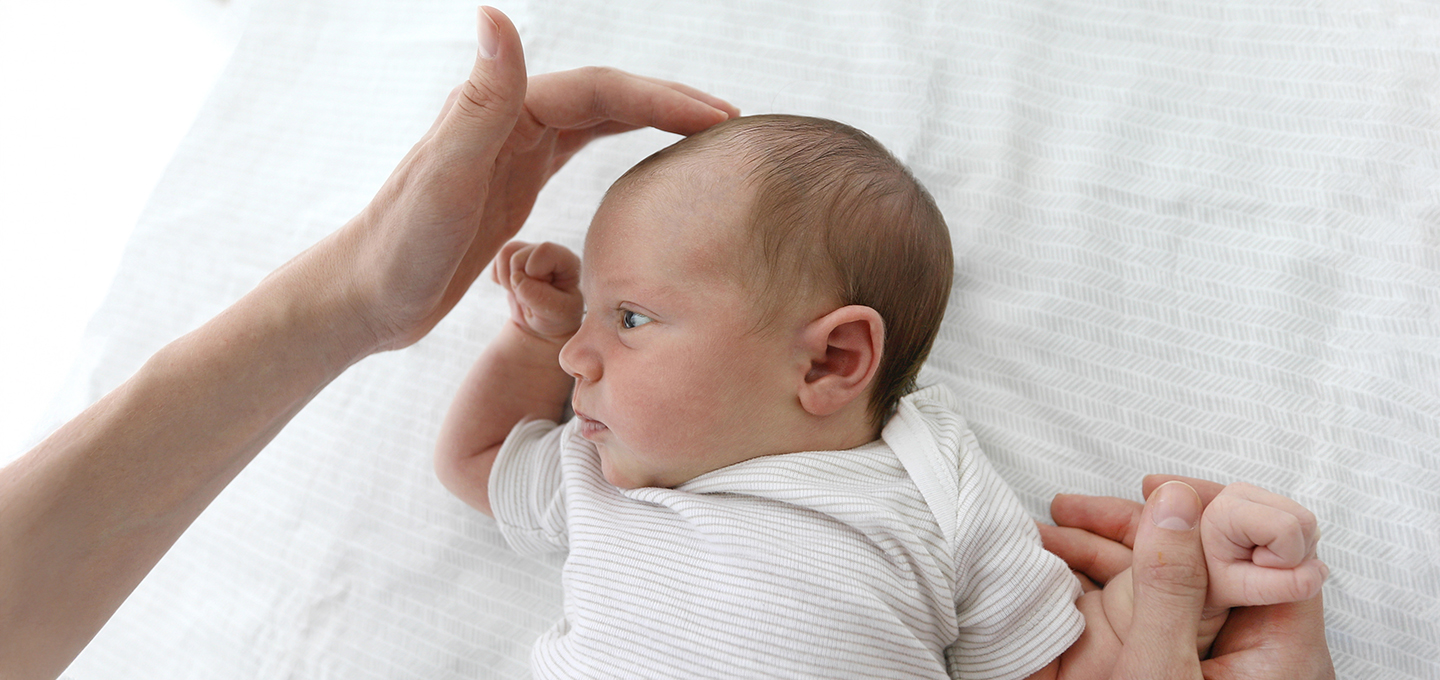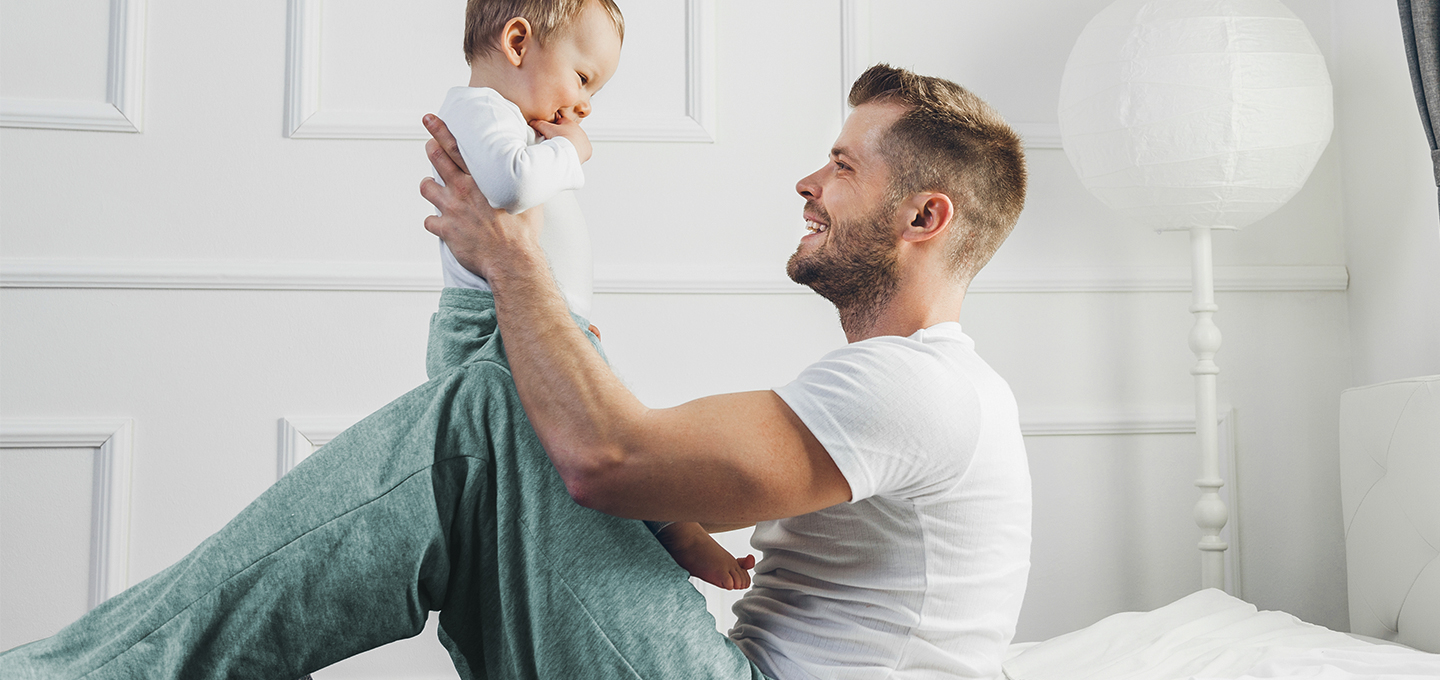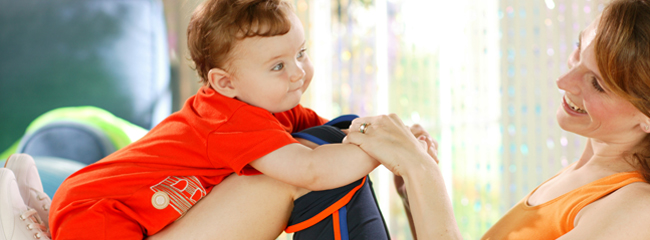
Baby Arching Back – Is It Normal?
If you look down into baby’s cot and see them bent backwards like an acrobat, you may wonder if this is normal or if it is a cause for concern. Back arching is very common in babies and young children and at this age they love to flex and build their muscles – but occasionally it could be a sign of discomfort or pain. Read on to find out more.
Why do babies arch their backs?
Back arching is very common in babies and usually completely harmless. Most babies arch their backs when they are crying or are restless – it is another way for them to communicate their needs and these movements are known as “baby cues”.
Some babies arch their back when hungry, while feeding or even when they’re asleep. Older babies will arch their back as they learn to move about, crawl, climb and hone their motor skills.
Back arching is usually nothing to worry about, unless it is accompanied by other signs and symptoms that may need closer attention. The most common of these include wind and feeding problems, reflux and colic. Most of these can be treated fairly easily if you know what the cause is. Here are the top causes and what you can do about them:
Common reasons for baby arching back
These are the most common reasons why your baby may be arching their back:
Moro reflex
A sudden noise may make your newborn jump, arch their back and throw their arms up – often seen if they have been peacefully sleeping. This is known as the Moro or startle reflex and usually disappears after baby is about two months old.
Wind, reflux and posseting
Most babies bring up milk when feeding or being nursed. Some hungry babies gulp in air or try to feed too fast, which often causes wind and discomfort, causing them to wriggle, cry or arch their back and burp after feeding. Reflux (different to GERD/GORD) usually happens because of developing muscles between baby’s stomach and oesophagus allowing milk or food to go back up to their mouth. This is perfectly normal and they will grow out of it. They could burp, hiccup or cough – although sometimes baby can bring up a feed without any warning. This is known as silent reflux. Bringing up milk during a feed is called posseting – it’s perfectly normal for a young baby to bring up small amounts of milk and this may cause an arching back when feeding. What you can do:
Colic
Colic is still not completely understood – but it is widely thought to be caused by gastrointestinal discomfort and usually disappears when your child reaches four to six months of age. Both breastfed and formula-fed babies can get colic, and it is characterised by:
There are some things you can try to calm your baby down: gentle rocking, playing white noise or soothing sounds, burping baby after a feed, even a warm bath can help. Sometimes, if you’re breastfeeding, you might find changing your diet helps. If the colic continues, don’t be afraid to ask your health visitor or GP for advice.
In summary
Baby arching their back can often be caused by wind during and after feeding. It is very common and often goes away with a little help, such as rubbing or patting their back after feeds, giving smaller feeds more often and keeping baby upright after a feed. If your child is often distressed for longer periods, it may be colic. If breastfeeding, a change in your diet may help; or give baby a warm bath. But it’s always a good idea to ask your health visitor or GP for their opinion.
GORD or GERD
Gastro-oesophegal reflux disease (known as GORD in the UK or GERD in the USA) is reflux that continues after a child is a year old. Before this age, reflux usually resolves itself. Signs of GORD are:
These symptoms do not necessarily mean that your child has GORD, but it is definitely worth getting a second opinion if your child is suffering from any of these or if you feel that they are not thriving as they should. Your GP can prescribe medication that can help or do further tests to help determine the cause.
Cow’s milk protein allergy
Cow’s milk protein allergies can also cause your baby discomfort that may make their arch their back, writhe or pull up their feet. Rarely, your child may also wheeze, develop a skin rash or swelling round the mouth. If they do show any of these signs, get help right away.
In summary
If your baby is arching their back, crying for long periods of time, not gaining weight or frequently vomiting, it is time to see the GP or health visitor to get some professional advice. More serious symptoms, like arching the back and writhing as well as wheezing, a skin rash or swelling should be looked at right away. If in any doubt, call 111 for expert advice.
Muscle building and motor skills
As your baby develops motor skills and builds muscle strength, you will see them getting much more active. As they get ready to roll over and sit up, you’ll probably notice them arching their back and wriggling their arms and legs in a swimming motion. You may now want to start giving baby “tummy time” to help them develop their muscles, strengthen their back and get ready to sit up. If they don’t seem to enjoy it very much, try just a few minutes a day to get them used to it. It won’t be long before baby starts rolling around – usually they are quite active by about four months old – and at about eight months your child will start to crawl around, getting ready to sit up on their own. You can read more about these important milestones in their development here.
Overstimulation and tiredness
Babies need lots of sleep to aid their development. To do this, they need a quiet place where they can rest, and overstimulation can lead to irritability, crying and back arching. Common signs that your baby has had enough are rubbing eyes, pulling ears and showing a lack of interest. If they start crying, arching their back or writhing, they really need to take a nap. It’s fun to see new things, but babies and young children need some downtime to relax and take it all in. If you think your child has done enough, pop them down for a sleep.
Teething
A teething baby may have tender, swollen gums that cause them to arch their back in discomfort. Try offering them a teething ring or toy: cooling a teething ring in the fridge may soothe your baby’s gums. A baby over six months could chew on a crust of bread or piece of fruit to help ease the pain.
In summary
Your baby may be arching their back, turning their head and trying to look around as they develop muscles and motor skills. Overstimulation, tiredness and even teething can cause your child to arch and writhe about. Give baby tummy time to help build their muscles, but don’t let them get overtired. If teething, try offering a cooled teething toy to chew on to relieve the irritation.
FAQS AT A GLANCE
Baby arching their back is usually either developing muscles and motor skills or because they are trying to ease discomfort from wind. It could also be colic. Don’t be afraid to seek the advice of your health visitor if in doubt.
- https://www.wchc.nhs.uk/children-young-people/parents-carers/new-parents/understanding-your-baby/
- https://www.healthline.com/health/parenting/startle-reflex-in-babies
- https://www.nhs.uk/conditions/colic/
- https://www.oxfordhealth.nhs.uk/cit/resources/gross-motor-skills-babies-and-toddlers/
- https://www.nct.org.uk/baby-toddler/feeding/common-concerns/what-baby-reflux-symptoms-and-support
- https://www.nhs.uk/conditions/reflux-in-babies/
- https://cks.nice.org.uk/topics/gord-in-children/
- https://www.nhs.uk/common-health-questions/childrens-health/what-should-i-do-if-i-think-my-baby-is-allergic-or-intolerant-to-cows-milk/
- https://www.emmasdiary.co.uk/baby/baby-health-and-illnesses/advice-on-when-the-doctor-needs-calling
- NCT: When to Call the Doctor About Your Baby
- https://www.bbc.co.uk/tiny-happy-people/what-is-tummy-time/zm2wrj6
- https://www.nhs.uk/start4life/baby/baby-moves/
- https://www.nhsinform.scot/ready-steady-baby/early-parenthood/your-baby-s-development-from-2-to-12-months
- https://www.wchc.nhs.uk/content/uploads/2019/12/SaferSleep_0-3months.pdf
- https://www.nhs.uk/conditions/baby/babys-development/teething/tips-for-helping-your-teething-baby/
Read more about Baby
Join Pampers Club and get:













